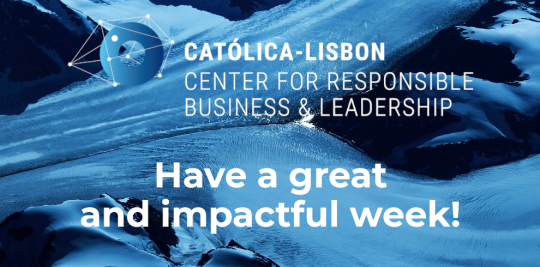
Walmart: "Investing" in salaries
February 9th 2020 - Edition #22
Walmart is the #1 retailer in USA, with a market cap of $315bn, revenue in 2018 of $500bn and a net profit of $10bn. It is the nation's largest private employer, and its varied selection of goods, from home furnishings and electronics to groceries, appeals to millions.
With this sort of dimension, it is understandable their purpose statement: "At Walmart we are committed to using our size and scale for good. Not just for our customers or even our associates (the way they call their employees), suppliers and their families, but also for the people in our communities and around the world that we will never meet".
Walmart came a long way, "blending" this new purpose with the long-lasting culture of cost reduction. From the previous "Best price/Best deal" to the current "Save money. Live better". Their commitment to customers is paramount and they are amongst the first corporations to anticipate the "Responsible Business" trend for their customer base and act accordingly.
They came a long way and have made significant progress with different stakeholders, ranging from their relationship with suppliers to the way they engage with local communities.
One of the most significant moves happened in April 2015, when Walmart announced increasing the minimum wage of all its US workers to 9$ per hour, with an estimated cost on the first year alone of $1bn. The following year, Walmart planned to increase the wage again to at least $10 per hour.
All said and done, Walmart committed to a $2,7bn investment (key word here) in its employees over a two-year period. Walmart also committed to more transparency in scheduling for part-time workers, more flexibility in the use of paid time-off, and more training and development opportunities for its employees (associates) and also investing in training facilities across the country called "Academies".
Walmart's shares fell 10% in response to that announcement. Doug McMillon, the CEO, argued at the time that while these investments put pressure on short-term earnings, "if we don't win customers, we don't have a business...We got so focused in the last few years in productivity that we did not invest in our employees and stores". I really love this amazing clear connection employee to customers. He also said at the time "investments would add $45bn to $60bn in revenues in just three years". Now, three years down the road... they did.
In the 2019 Survey 2019 from Ethical Corporation, Walmart reached the top Ten (climbing nine places) of Companies leading the way in terms of Sustainable Innovation.
Was Walmart's decision to raise wages and invest in employees all about money (Profit)? Was it all about doing the right thing (Purpose)? Or was it something in between? In the future, Companies will hardly survive without both - Purpose and Profit. The "rules of the game" are changing fast, it is not anymore about "shareholders only" but about the whole "stakeholder framework". Which leads more and more to Purpose. Purpose seems to be the concept able to align and engage stakeholders and provide for a new strategic dimension of sustainability management. It could provide the dimension “above” all stakeholders interests (including shareholders) that will trigger the call to action.
Have a great and impactful week!
Nuno Moreira da Cruz
Executive Director
Center for Responsible Business and Leadership
The Center for Responsible Business & Leadership has the main purpose of contributing for Sustainability and Responsible Leadership to become part of the “way we do things in our planet”. Find out more here.
"Have a Great and Impactful Week!" is the weekly newsletter from CATÓLICA-LISBON's Center for Responsible Business & Leadership. You can subscribe to "Have a Great and Impactful Week!" here.
"Have a Great and Impactful Week!" is sent out every Sunday at 5PM, bringing new insights on the world of corporate responsibility, sustainability and responsible leadership. It is often signed by the Center's Executive Director, Nuno Moreira da Cruz.